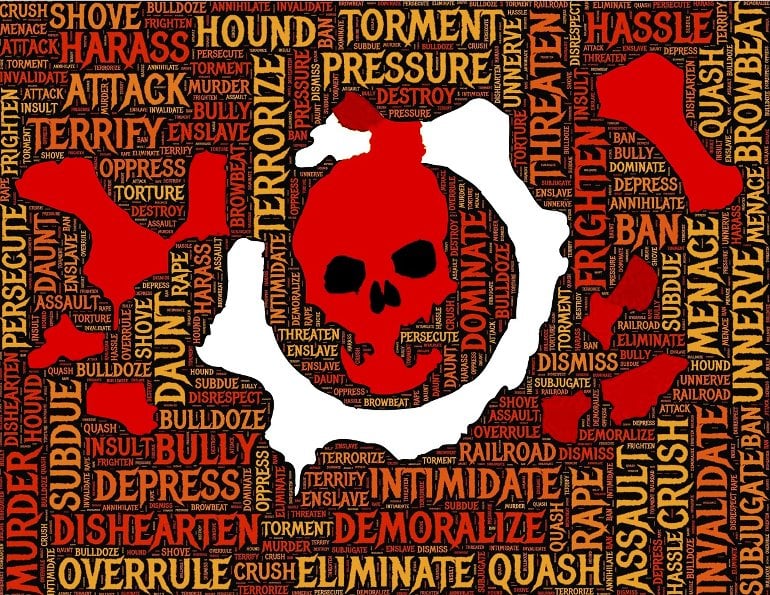Summary: Researchers explore why revenge may feel good in the moment, but often results in mixed emotions later.
Source: The Conversation
The UK prime minister, Boris Johnson, is fighting to stay in power after it emerged that he attended several parties during the country’s strict lockdowns in 2020 and 2021. His former adviser Dominic Cummings, who was sacked by Johnson in 2020, has been accused of being the mastermind behind a number of carefully orchestrated leaks about the gatherings – amounting to a pretty spectacular case of revenge.
Most of us have dreamt about revenge at some point in our lives, and perhaps even achieved it. But is it ultimately a good idea – will it make us wiser and happier in the long term?
They say that revenge is sweet, and there is evidence from neuroscience that they are right. In a 2004 study published in Science, researchers scanned participants’ brains using positron emission tomography (PET) while they played an economic game which centred on trust, and sometimes led to vengeful actions.
The game went as follows: two male players interacted anonymously with each other, person A and person B. Each started the game with ten money units. Person A made the first decision, he could either transfer his ten units to person B or keep them for himself. If he transferred the money, the experimenter quadrupled the amount that person B received to 40 units, so B then had 50 units. Person B could now send back half of this (25 units) to A or send nothing at all.
If B acted in a trustworthy manner and sent back half the money, they both ended up with 25 units – a big profit on the ten they had each started out with. But if B violated A’s trust and sent back nothing, B ended up with all 50 units. If A failed to trust B and didn’t transfer any money in the first place they both ended up with 10 units.
The experimenters were interested in A’s judgements of unfairness when B kept all the money, as well as their desire to punish B, plus their actual punishment of B by removing money units from them in their next move in the game. The experimenters were also interested in changes in activity in certain regions of A’s brain as they sought revenge.
When trust was violated in this way, participants reported that they wanted revenge, and this was reflected in increased activity in the reward-related regions of the brain, the dorsal striatum. Revenge, in other words, is all about feeling good, rather than feeling bad.
They also found that those participants with the strongest activity in this region were willing to incur greater personal costs (with money units deducted from their own account) to get their revenge.
Some argue that revenge is mainly about punishing transgression and maintaining the social order. But the fact that it can make you feel so good while you anticipate the effects should not be neglected.
The dilemma of revenge
This isn’t necessarily the case after an act of revenge, however. In a 2008 study, researchers found that people often reported far more negative mood immediately after engaging in an act of revenge.
Another study introduced a wider range of measures to assess these psychological effects. In addition to probing the mood state of participants after they contemplated an act of revenge, the researchers also included a computational analysis of the language the participants used while writing about their thoughts and feelings about the event, and a more detailed analysis of their overall emotional responses rather than just transient mood.
Their conclusion was that participants reported a mix of emotions. Revenge is not always sweet, rather “revenge is bittersweet” (hardly as punchy a phrase admittedly). This means that revenge actually has the capacity to trigger both positive and negative emotions (including feeling tense, uncertain and having a sense of dread).
This in many senses is the dilemma of revenge. Revenge seems so appealing and so rewarding, making the brain’s reward centres positively glow. But whilst planning the revenge may feel wonderful, afterwards it may be a different story.

The longer-term effect depends on so many other factors – including how your feelings change about the original act and whether you can now empathise with the perpetrator and understand it from their point of view. How you feel about the personality of the perpetrator and whether they can repair their behaviour without you having to exact revenge also matters, as does whether they have the capacity for change and apologise in a meaningful way.
Even time itself can affect how the revenge feels. This makes it hard to work out whether there are any longer-term psychological benefits.
Other options
So, what should you do instead of taking revenge when you are wronged? Just bottle things up? This can sometimes be very hard, as we all know. One study explicitly instructed participants to write about hurtful events, focusing on the personal benefits like how it changed them for the better, to see if that could help them let go of their need for revenge.
The participants wrote that they had “grown stronger”, “discovered unknown strengths”, and had “become wiser” thanks to the experience. They also said it had “allowed for new experiences”. Writing about the events in this way meant that they were able to forgive the perpetrator and were less likely to seek revenge. They also suffered less longer-term stress and anger, ultimately boosting their psychological well-being.
Perhaps modern neuroscience hasn’t quite caught up with the complexity of real-life revenge. We don’t know how it behaves over time, for example. Maybe the dorsal striatum lights up with force every time you sit down and plan revenge over a prolonged period, or perhaps the feeling of anticipated reward becomes less intense over time. Maybe then you must plan more and more extreme acts of revenge to get the same neurophysiological and psychological hit. Time will tell.
Either way, like many things in life, anticipation is often better than the actual experience. So revenge-plotters out there should take note: the actual deed may not quite live up to your expectation.
About this revenge and neuroscience research news
Author: Geoff Beattie
Source: The Conversation
Contact: Geoff Beattie – The Conversation
Image: The image is in the public domain






